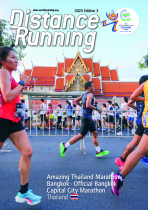Running news
14 May 2021, 1pm UTC
Olympic Marathon: Kipchoge vs Bekele?
Olympic marathon qualification and nomination is often an opaque procedure in the two running superpowers of Kenya and Ethiopia.
While Kenya made nominations at the end of February, officials each put four athletes on the list for three starting places. World record holders Eliud Kipchoge and Brigid Kosgei can safely assume that they will start in Japan. For the Ethiopians the situation has been unclear for a long time.
A qualifying race on 4 April in Hawassa in the south of the country was relocated to Geneva. But Coronavirus conditions made the Swiss option too complicated and in the end, on 1 May 20km south of Addis Ababa, a 35km elimination race at an altitude of 2200m was held just three months before the Olympic races.
Last October’s London Marathon winner Shura Kitata won the men’s race in 1:46:15, one second ahead of Lelisa Desisa and with Sisay Lemma a further two seconds back. Tigist Girma (1:59:23), Birhane Dibaba (1:59:45) and Roza Dereje (2:00:16) were the fastest three women.
Only six out of 12 men started the trial. Many runners did not believe in such a race: over 35km, in cool temperatures and at high altitude it was the opposite of what can be expected at the Olympics in Sapporo.
Kenenisa Bekele was among the athletes who did not start but because officials reserved the right to be able to award the third Olympic place regardless of the trial result in Sebeta, the three-time long-distance Olympic champion was not yet out of the race: at a press conference of the National Olympic Committee of Ethiopia it was announced that Kenenisa Bekele was nominated for the Olympic Marathon.





